The winner of the 2022 Milk Producer’s Organisation (MPO) Nedbank Stewardship Awards will be announced during a gala dinner at Casa Toscana Lodge in Pretoria on 30 November 2022. The top three finalists, Dean Biggs, Garth Hume and Alan Webster, are waiting excitedly to hear who will be walking away with the grand prize of R40 000.
Nedbank has sponsored the awards for the past four years and, according to John Hudson, Nedbank’s national head of agriculture, sustainability and stewardship of natural resources and human capital is of great importance. ‘With increased pressure on our natural resources and clear evidence of the impact of climate change, it is vital that we, as a society, address these challenges head-on. This conviction is what underpins much of what we support at Nedbank. Strategically, we aim not only to be good with money but, more importantly, to do good with it as well, and our sponsorship of these awards, which recognise and reward those who are adopting and raising awareness of best practices, is closely aligned with this strategy,’ he says.
The MPO is just as excited to announce the winner. ‘We are so honoured to feature the cream of the crop from our industry each year, as sustainability is one of the main pillars of our organisation. We want dairy farmers to see first-hand what they can achieve on their farms and inspire them to follow in the footsteps of these three top candidates,’ says Fanie Ferreira, the MPO’s chief executive officer.
Highlight
One of the highlights of the event will be the presentation delivered by Prof James Blignaut, the event’s main guest speaker. He is a professor connected to the School for Public Leadership at Stellenbosch University, and an honorary research associate of the South African Environmental Observation Network. He is also a member of the Scientific Council of the World Farmers Organisation and a founding member and director of both ASSET Research and Restore Africa Fund.
ASSET Research focuses on the development of capacity in environmental economics and related fields, while Restore Africa Fund seeks to aid farmers to apply conservation and regenerative principles.
Prof Blignaut started his career at the South African Reserve Bank in 1992 as a statistical economist and worked at the University of Pretoria from 1996 to 2017. He focuses on the economics of restoration, including the economics of conservation and regenerative agriculture, natural resource accounting and payments for ecosystem goods and services, and other financial instruments that can contribute towards societal healing.
A virtual visit to the farm of each of the top three finalists will be held during the event so that the audience can learn more about what each of them does on their farm to protect the environment.
Here are the finalists, in no particular order:
Dean Biggs
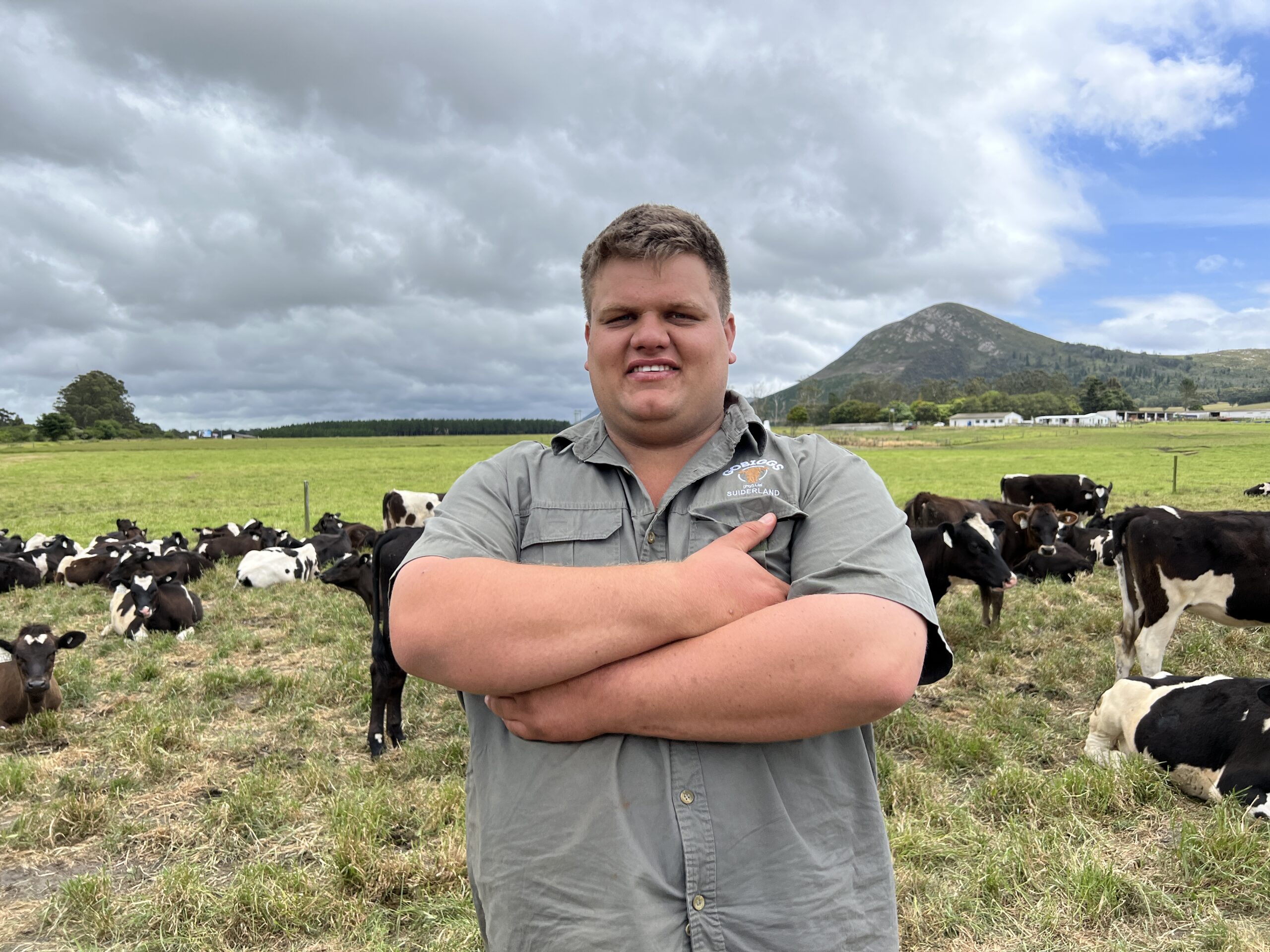
Dean Biggs is 24 years old and a fifth-generation Biggs dairy farmer. His family has been farming on Suiderland Farm in the Tsitsikamma area since 2002. His passion for animals and dairy is not the only driving force that motivates him to farm. He is also driven by strong family values to always leave something in a better state than what it was given to you.
‘As a young farmer, I wanted to spend time on the farm to learn, improve my skills, and help the family grow our business. Suiderland is a dryland farm, so we have always farmed according to sustainable farming and conservation practices,’ he says.
Dean currently milks 1 200 cows on a dryland farm system. He also runs a successful calf-rearing programme. One of his strategies is to research the selection of the right type of grass species and then grow a selection of grass cultivars that are an optimal match to his environment and the climate. This enables him to fully utilise what nature has to offer.
He is a hands-on farmer, and also involved in his community. He helps emerging young farmers and dairy farm managers develop their skills and also assists the MPO by inviting young learners to receive training on his farm.
Garth Hume
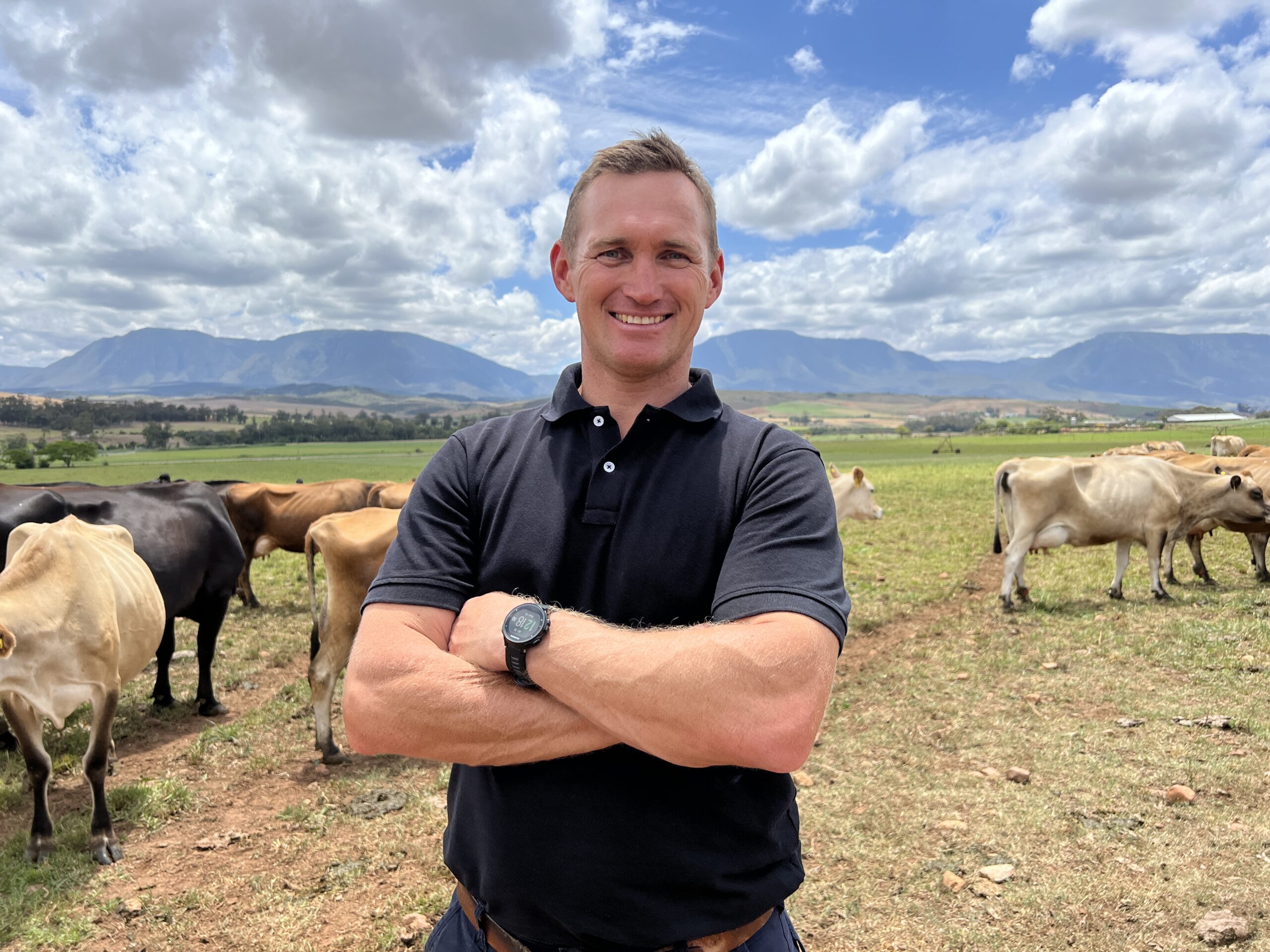
The Hume family started farming in 1962, mainly with merino sheep. ‘My grandfather, Les Hume, sold his farm in the Aberdeen district and settled in Riversdal. In 1984 he started with 25 cows, which were milked by hand, and delivered 200 litres of milk per day to Nestlé.’
In 1975, his father joined his grandfather when the first milking machine – an eight-point tandem milking parlour – was installed. Cow numbers grew to 130. Garth’s oldest brother, Brian, joined the farm in 2001.
In 2004, they upgraded the milking parlour by installing a 32-point system, which they still use today. Garth, the youngest brother of three, and his wife Yolandi joined the family business in 2009, while his middle brother, Gavin, was the last to join the family in 2012.
Today, they milk an 800-strong dairy cow herd and farm with about 400 beef cows. Managing the herd efficiently, the health of the soil, and good pasture management are their focus areas. They still sell their milk to Nestlé.
‘Through the years, we invested in innovative technologies, and we use new methods to till the soil. We have the deepest respect for nature and strive to protect it in all that we do. We believe in maintaining good soil health to support nature in providing us with the best possible pastures for our cows so that they, in turn, can produce the best possible quality milk. We strive to use fewer chemicals and one of our goals is to increase the feeding capacity of our pastures by applying good pasture management practices.’
Garth believes farmers only have about three decades to make a difference and to protect and secure the soil and water resources that they currently enjoy. ‘We strive to leave the resources in a better condition than when we found them so that future generations can still farm here. We also want to make a positive difference in other people’s lives, especially those with whom we work every day. We want to be an example to others when it comes to stewardship and our business values are based on investing in people, protecting our environment, and building a profitable but sustainable business for future generations.’
Alan and Frances Webster
Foundation is a farm that started with less than 20 Jersey cows in 1990. It has been the Websters’s policy to produce solids milk from high-quality cows all year round, as this is what the market requires. The Websters have participated in milk recording from the beginning and also won prestigious ARC dairyman competition in the past.
They developed and grew the local dairy market in Weenen (KwaZulu-Natal), where they started with only private sales, and then added cheese production because milk buyers were willing to travel to the small town.
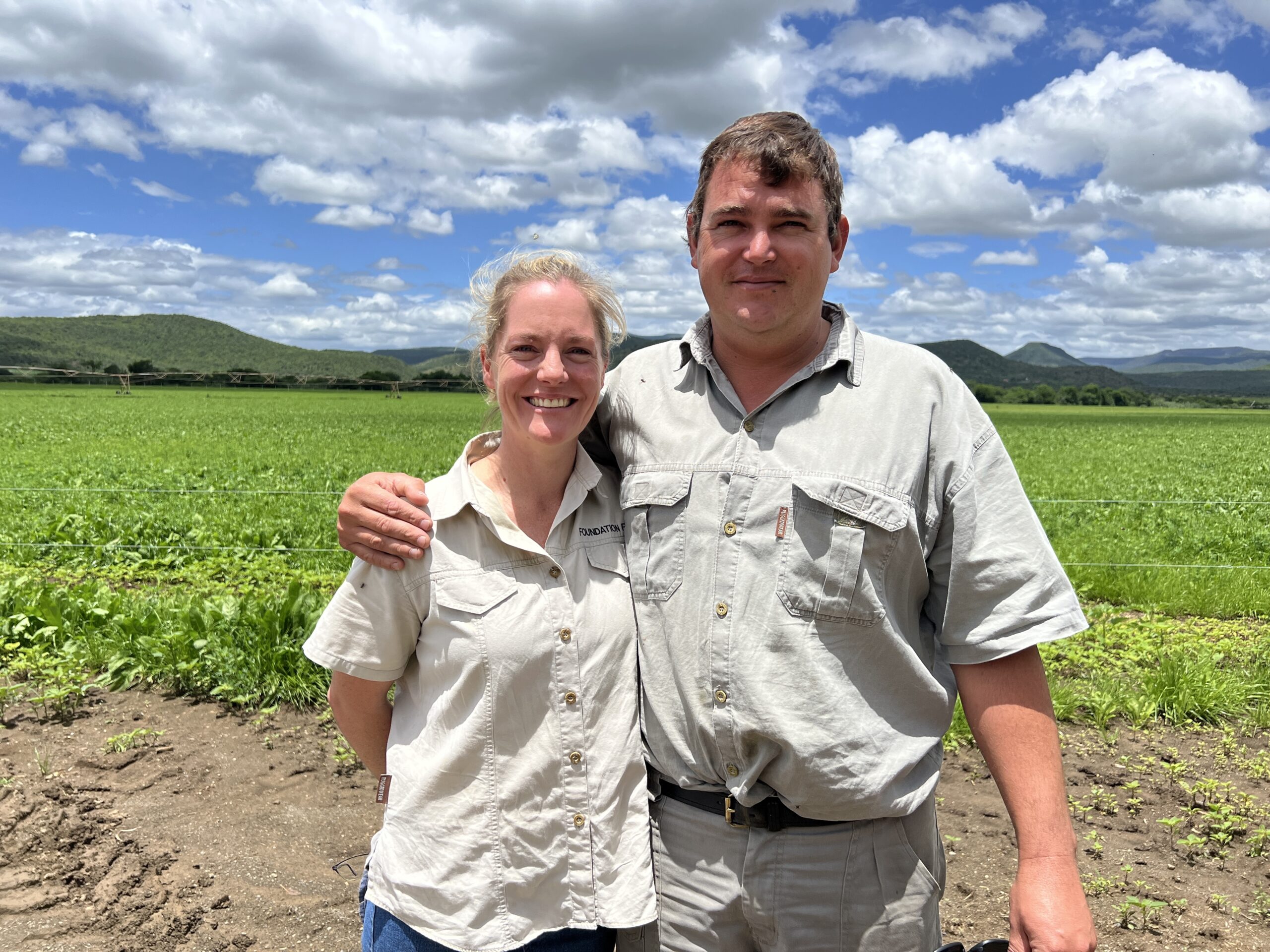
The Websters farm closely with their daughter, Jane Schiever, and her husband Barry. Together, these four make up a winning team. Foundation currently has around 1 200 cows in their herd, milked in two dairies. The Websters have won numerous awards in herd competitions hosted by different feed companies as well as the Jersey Breed Society. Many of the cows are registered with Jersey SA. The Websters enjoy beautiful cows in lovely pastures, seeing the results of genetic progress in their heifers, and watching them develop and grow.
They are committed to taking good care of their cows, while protecting and managing the land, as well as trying to make a meaningful difference in the lives of their employees and their families.
Weenen is a hot and dry area but does have a good supply of irrigation water. As a result of the heat, many of the temperate species of pasture grasses do not persist. Because of this, kikuyu is used as a base with ryegrass, lucerne, clover, and chicory of plantain, giving a year-round fodder flow. Maize silage is also planted and cut. A good-quality dairy meal is added to the mix.
The farm uses a slurry tanker to return animal waste to the pastures. By using sludge and including the legumes in the pasture mix, they have managed to reduce nitrogen usage. The Websters have also installed solar panels with some financial help from their milk buyer and are planning to use irrigation probes in the coming season.
The older generation enjoys birding and wants to protect the environment for future generations. The younger generation believes in making use of advances in technology and leadership techniques to grow the business sustainably and profitably. Their attention to detail is unsurpassed.
Source: MPO

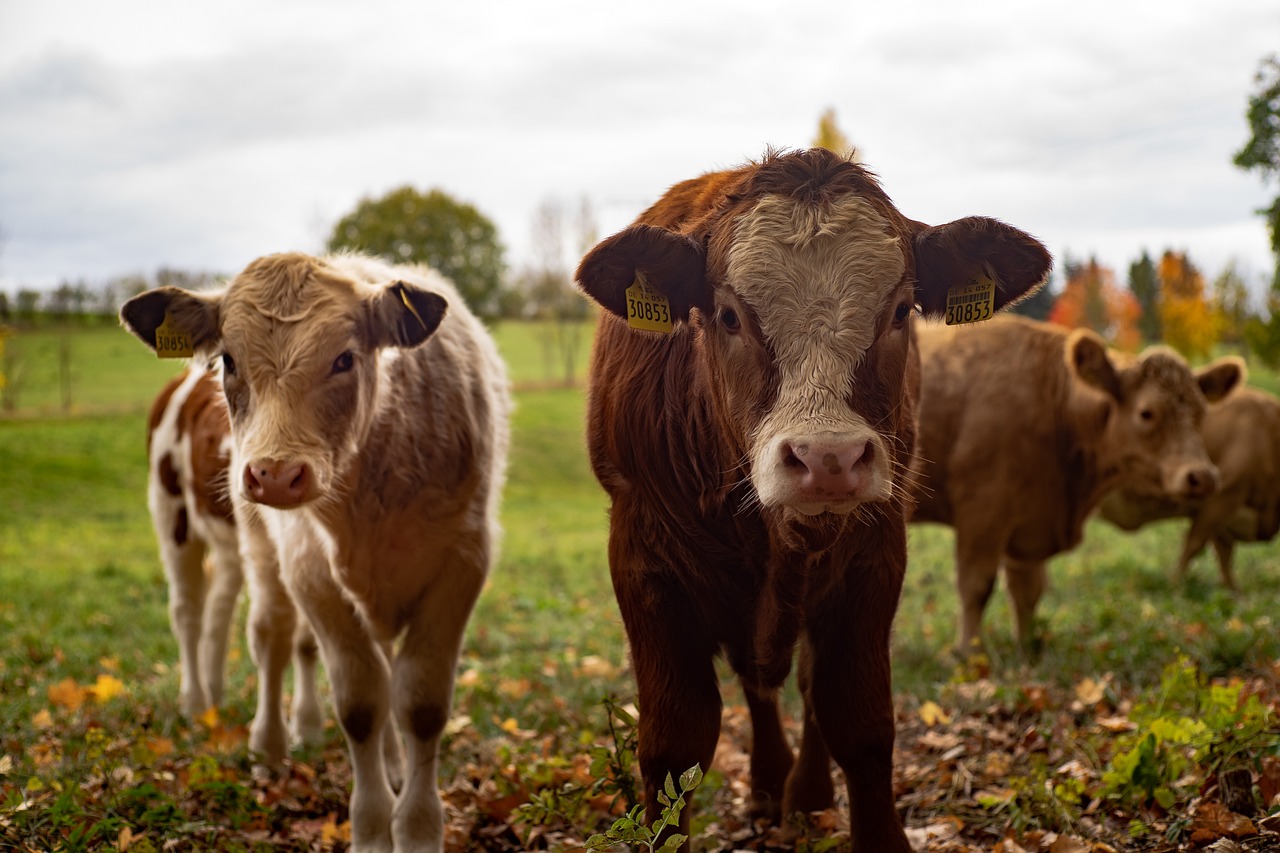


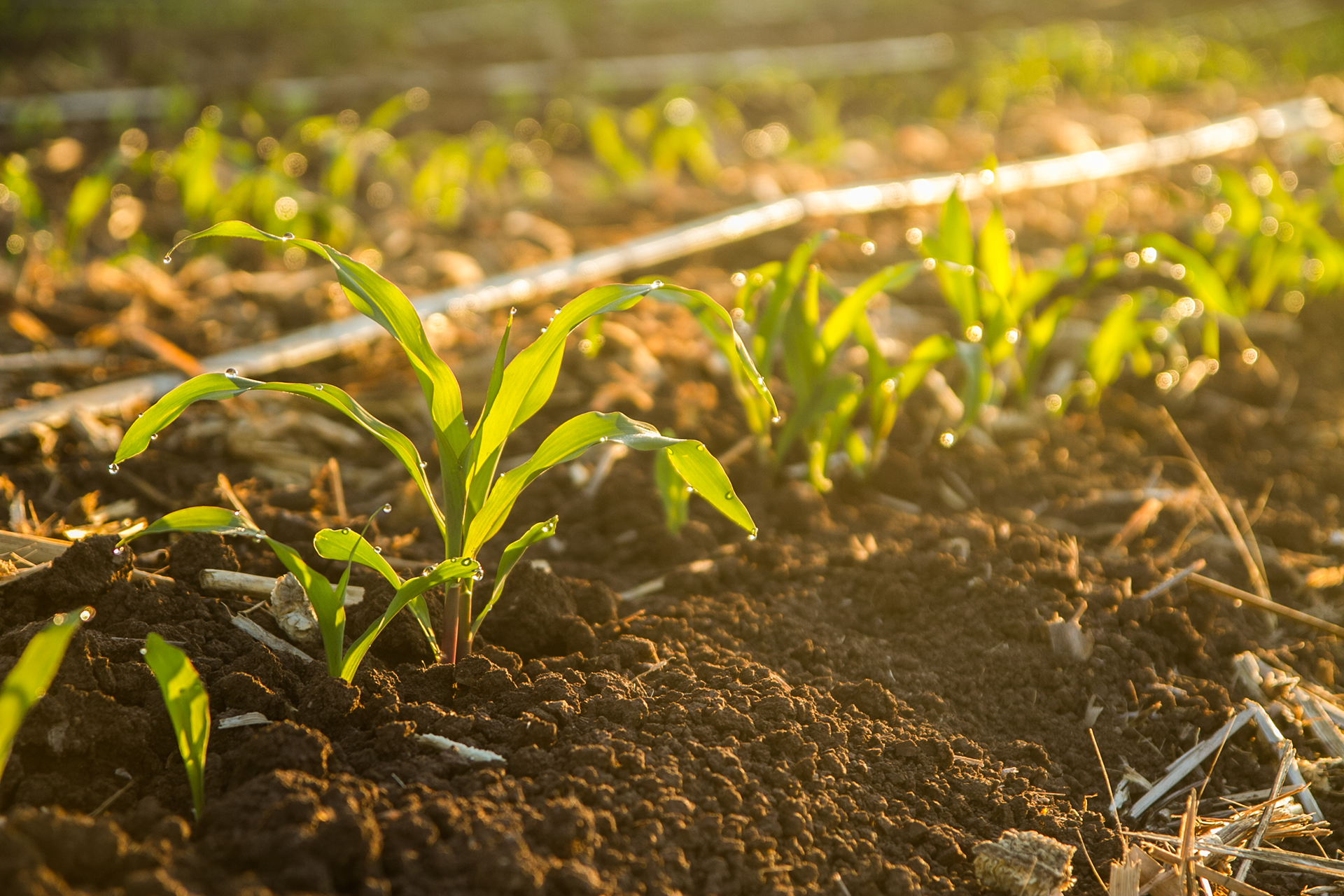





Alan Webster was a student with me in England in his early days ,I always thought he would be successful one day ,well done to the whole family .